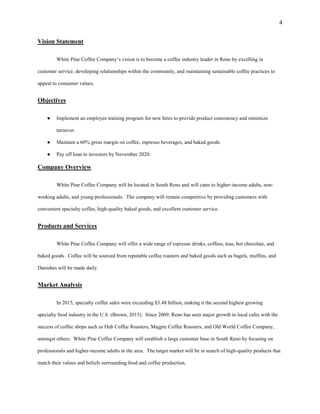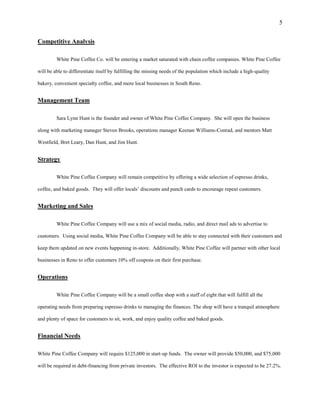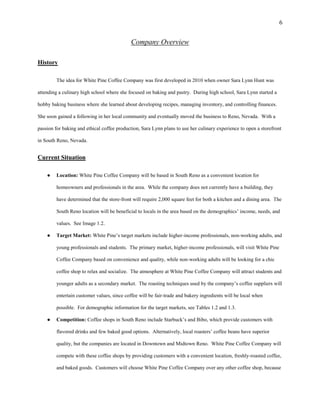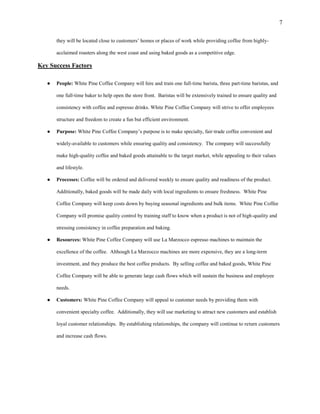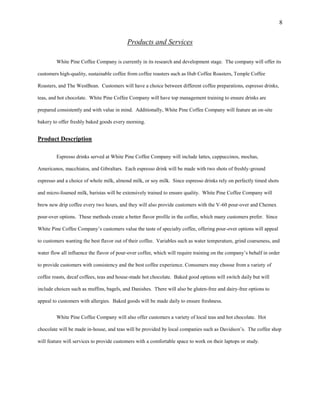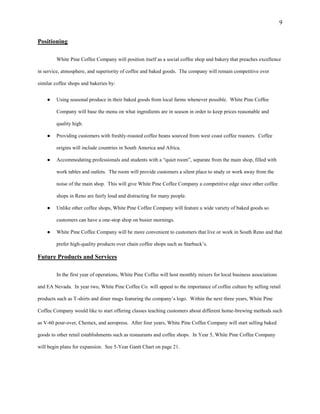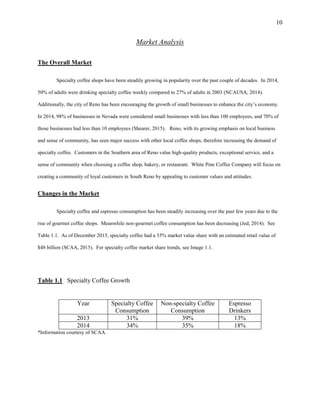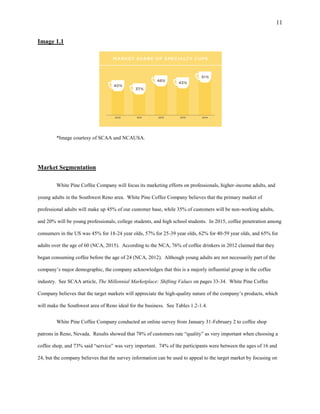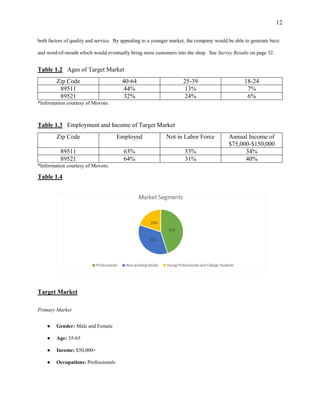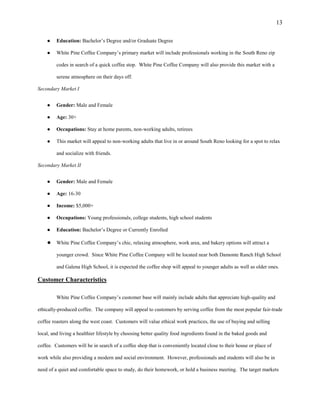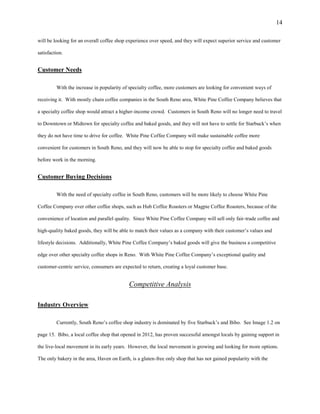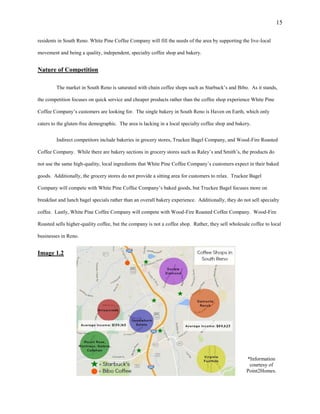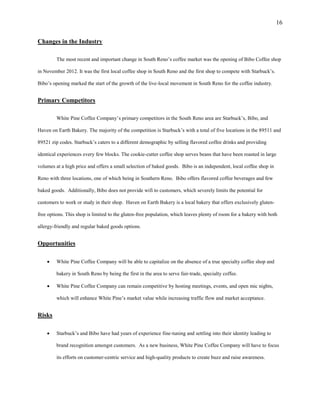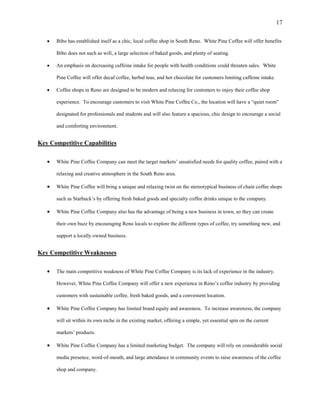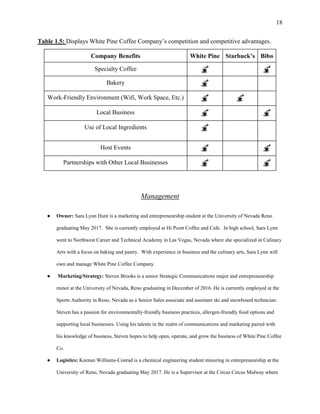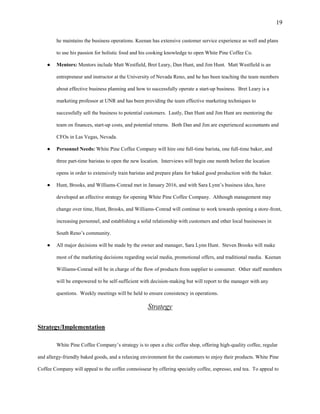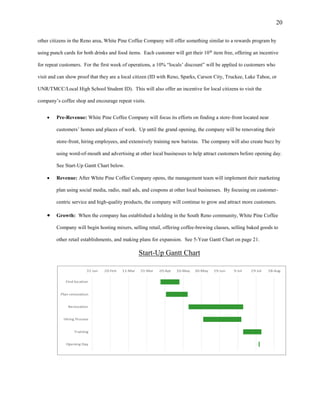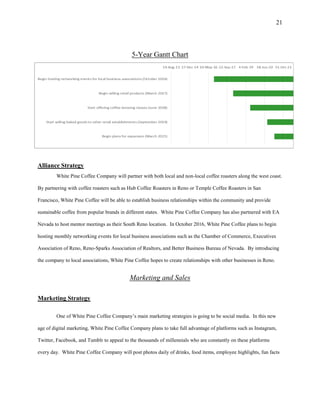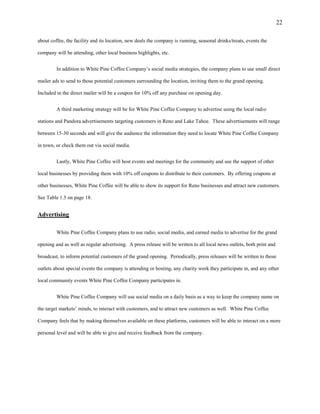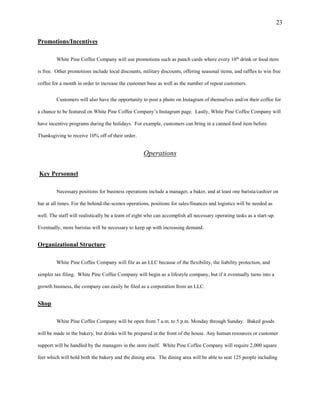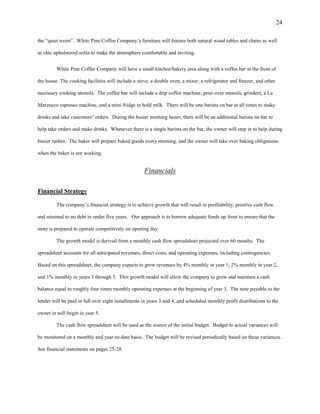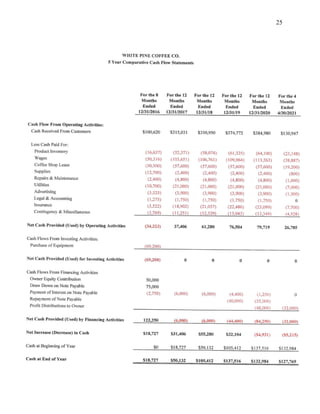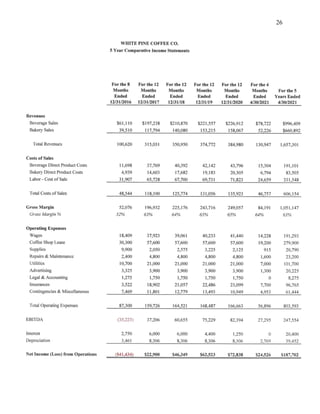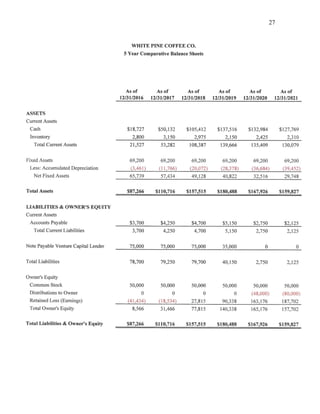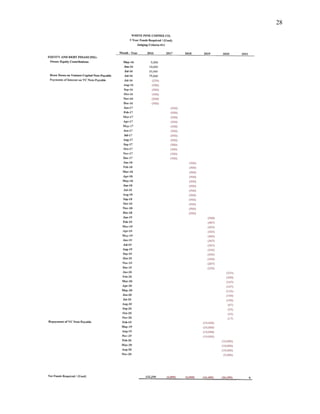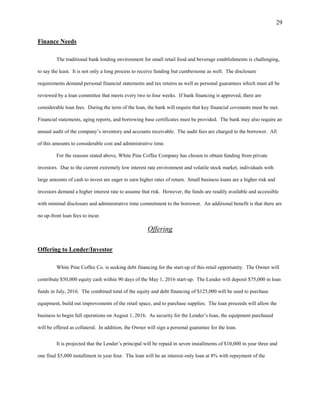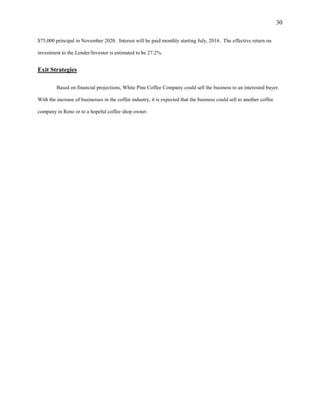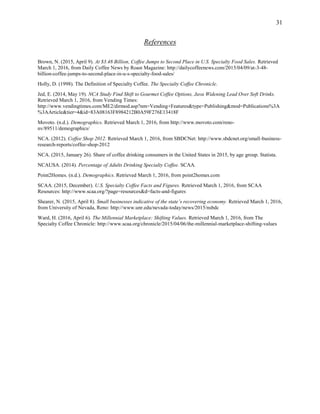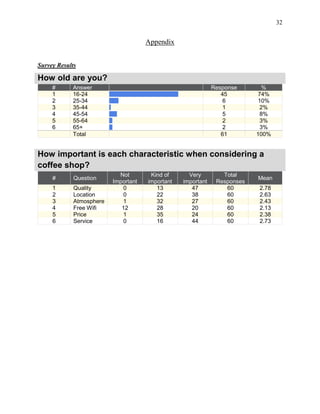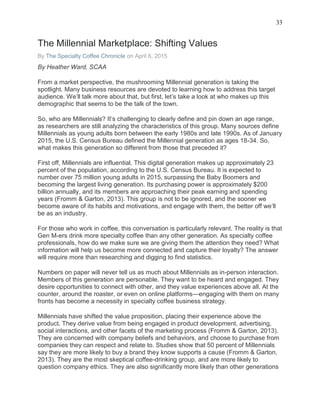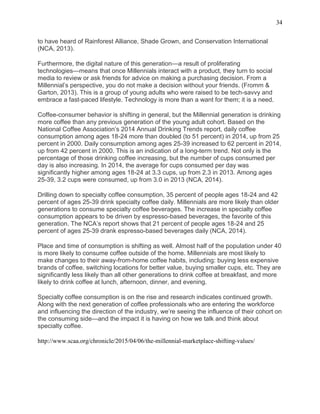White Pine Coffee Company is a start-up specialty coffee shop and bakery located in South Reno, Nevada. The business plan outlines the company's mission to serve high-quality coffee and baked goods while supporting ethical coffee practices. Products will include espresso drinks made with specialty coffee from local roasters as well as baked goods made in-house daily. The target market is higher-income professionals, non-working adults, and students in South Reno. Competition includes large coffee chains but White Pine aims to differentiate with local sourcing and a quiet work space. $125,000 in start-up funding is required, with $50,000 from the owner and $75,000 in debt financing.
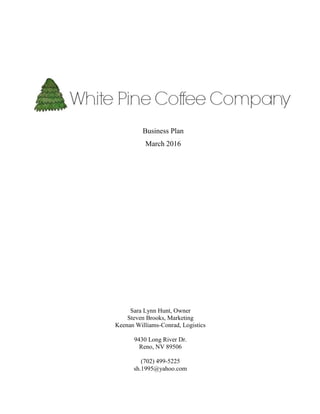
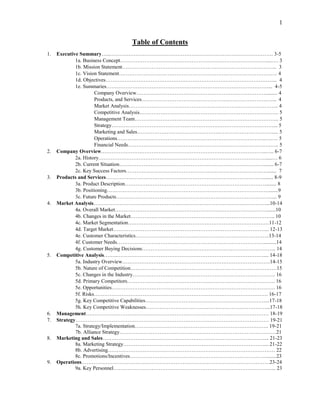
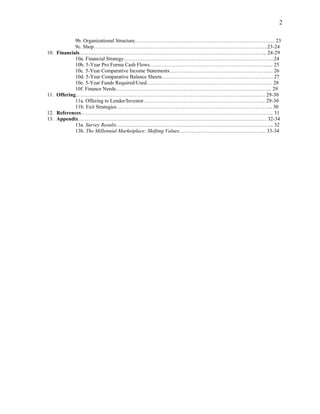
![3
Executive Summary
Business Concept
Specialty coffee was first defined by Erna Knutsen in 1978 with a relatively simple process: “special
geographic microclimates produce beans with unique flavor profiles, which [Knutsen] referred to as 'specialty
coffees'. Underlying this idea of coffee appellations was the fundamental premise that specialty coffee beans would
always be well-prepared, freshly-roasted, and properly brewed” (Holly, 1998). White Pine Coffee Company is a
start-up coffee shop and bakery located in South Reno, Nevada that wholeheartedly believes in the ethical
production of coffee beans and that using specialty coffee practices prepares top-notch coffee products. White Pine
Coffee Company will cater to the increasing population by providing customers with freshly-roasted, fair-trade
coffee sourced from coffee roasters in Reno, San Francisco, and other cities along the west coast. The company will
also offer baked goods made with fresh and local ingredients. White Pine Coffee Company will appeal to
customers’ values and lifestyle by serving sustainably-produced coffee and using ingredients provided by local
farmers whenever possible. The physical store will be conveniently located in the higher-income area of South
Reno, which currently does not have a specialty coffee shop and bakery. The atmosphere will be both relaxing and
social, and the shop will feature a separate “quiet room” for professionals and students to work or host a meeting.
White Pine Coffee will be the first of its kind in South Reno by giving locals both a specialty coffee shop and bakery
in one, while also providing a modern atmosphere and appealing to customer beliefs about ethical coffee practices
and locally grown products.
Mission Statement
White Pine Coffee Company’s mission is to serve the community supreme baked goods and specialty
coffee by supporting the company’s ethical beliefs surrounding coffee bean production. White Pine Coffee
Company strives to create loyal relationships within the community, share the company’s passion and knowledge of
all things coffee, and utilize employees’ talents to deliver the finest coffee and baked goods available.](https://image.slidesharecdn.com/f09cdea0-6fc8-477b-8516-bbcd3b9d8a95-160422005039/85/White-Pine-Coffee-Co-Business-Plan-Final-4-320.jpg)
